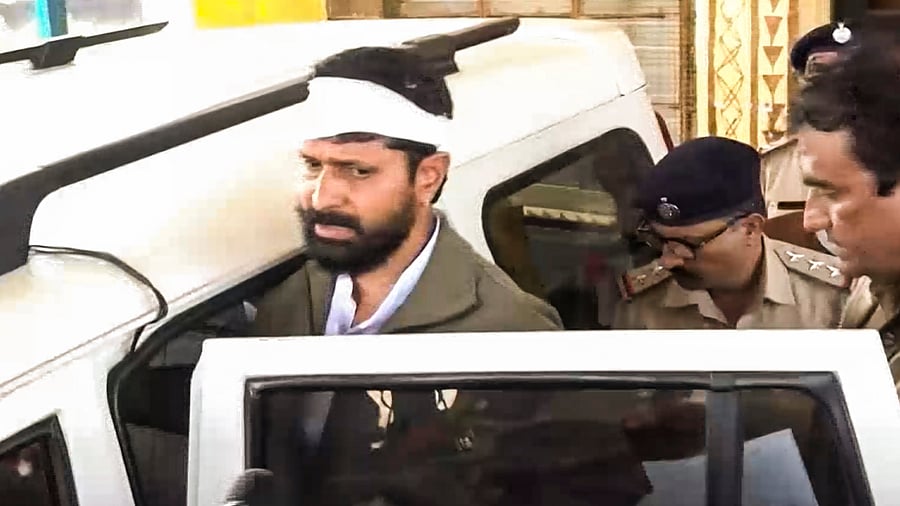
A file image of CT Ravi being arrested over his controversial remarks against Laxmi Hebbalkar.
Credit: PTI Photo
Bengaluru: The Karnataka High Court on Thursday stayed all further proceedings against BJP MLC CT Ravi in a complaint for using abusive words against minister Laxmi Hebbalkar on December 19, 2024 inside the Suvarna Soudha in Belagavi.
Justice M Nagaprasanna also ordered notice to the complainant in the case -- Laxmi Hebbalkar -- and adjourned the hearing to February 20.
The FIR was registered against Ravi for offences under section 75 and 79 of BNS, which deal with use of word or gesture against a woman which would amount to outrage her modesty.
Senior advocate Prabhuling Navadgi, appearing for Ravi, contended that any speech of any kind spoken by a legislator inside the legislation is completely immune from actions under Article 194 (2) of the constitution. He said Article 194 (2) does not make a distinction that it should be in connection with the debate or proceeding. It gives the protection to legislators for anything said or voted in the legislature, including whatever said in a sub-committee proceeding.
On the other hand, State Public Prosecutor BA Belliyappa argued that anything and everything done in the parliament or legislature, as the case may be, would not have absolute immunity. He said the Apex Court in several judgments considered the very issue and held that Article 194 (2) is a qualified immunity and not an absolute.
Justice Nagaprasanna noted that the Apex Court in a judgement in the State of Kerala vs Ajit case, relating to vandalizing the furniture of legislature, had referred to privileges in the House of Commons in England and all the other literature on parliamentary privileges, and held that the parliamentary privileges or legislature privileges inside the house is not absolute, like it is in the House of Commons.
“The Apex Court in the said judgement (AJit case) holds that vandalizing furniture/criminal acts inside the house would not be covered under the immunity under Article 194 (2) of the constitution. Therefore, the matter requires consideration as judgements galore both for and against the contentions,” the court said, while adjourning the hearing to February 20.